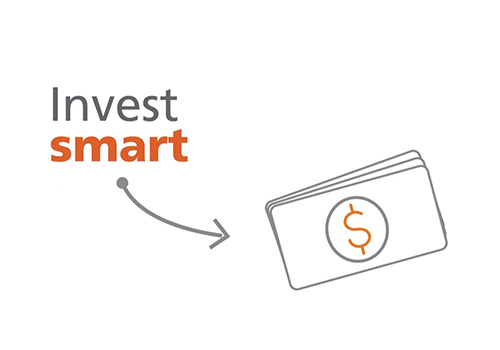Video
The five stages of your HSA journey
Learn more about the five-stage journey we go through as we save and pay for qualified medical expenses.
Saving and spending for health care isn’t a sprint. It’s a journey. And you have questions. And you may not be sure where to begin.
Start with a health savings account or HSA.From the moment you decide to open your account— to maximizing your health care dollars, your HSA journey will take you through five stages.
Before you decide to open an HSA, find out if you’re eligible. The main requirement is that you’re covered under a qualifying high deductible health plan, or HDHP. There are also additional requirements defined by the IRS.
An HSA offers you an easy, convenient, income tax-free way to save and pay for qualified medical expenses for you and your eligible dependents. In general, contributions to your HSA are income tax-free. And when the money is used to pay for qualified medical expenses-- it is also income tax-free. Your savings can also potentially grow income tax-free. Three very good reasons to say yes to an HSA!
Now that you’ve decided to open your HSA, it’s time to get your account up and running! There are just a few simple steps to complete an application. Or your employer may have already opened your account for you. You’ll also need to decide how much to contribute to your account; up to the current IRS limit. An easy way to contribute to your HSA is through payroll deductions, if your employer offers this option. Or you can make a one time or recurring contribution to your account online. Remember you can stop, start or change your contribution amount at any time. The best part? The money in your account rolls over from year to year. And it’s always yours to keep. Even if you change jobs or retire.
Now it’s time to start using your HSA dollars to pay for qualified medical expenses. It’s easy! You can use online bill pay or your Optum Financial debit card. You can also sign in to your account to request a reimbursement if you’ve already paid your bill out of pocket.
Questions? Online tools can keep you on track and help is always just a click away. You’re doing a great job managing your HSA, way to go! You know making informed decisions at every stage of the journey is key to making the most out of your healthcare dollars.
Be sure to stay up to date with your account activity, view statements and track your cash flow. Online tools can help you track your contributions and manage your receipts. Be sure to maximize your contributions. If you’re 55 or older, you can contribute an extra $1,000 annually as a catchup contribution.
The fifth stage of your journey? Optimizing your health care dollars! Once your HSA reaches a certain designated balance, known as the investment threshold, you can choose to invest a portion of your HSA dollars. Unlike a 401k, if you happen to incur a large health expense—those dollars are yours to use at any time.
Save, invest and potentially grow those dollars to help you build a nice nest egg for retirement.
Decide. Open. Use. Manage. Optimize. The five stages of your HSA journey. For questions or to learn more, visit optumfinancial.com.
A five stage journey
Whether you've just opened a health savings account (HSA) or you’ve been contributing for years, you likely have questions. We all do. And how you use your HSA will likely change over time. Most of us go through a five-stage journey as we save and pay for qualified medical expenses.
Related resources

Options to Invest Your HSA

HSA Tax Center

How to use an HSA
Self-directed mutual fund investment options are made available through the services of an independent investment advisor, or your plan sponsor. Discretionary advisory services are provided by Betterment LLC, an SEC-registered investment adviser, with associated brokerage transactions provided by Betterment Securities, Member FINRA/SIPC. For details and disclosures visit betterment.com. The Schwab Health Savings Brokerage Account is offered to certain account holders through Charles Schwab & Co., Inc., Member FINRA/SIPC. For details and disclosures, visit schwab.com. Brokerage services are offered to certain accountholders through TD Ameritrade, Inc., Member FDIC/SIPC and a subsidiary of The Charles Schwab Corporation. For details and disclosures, visit tdameritrade.com.
Orders are accepted to effect transactions in securities only as an accommodation to HSA owners. Optum Financial and its subsidiaries are not broker-dealer or registered investment advisors and do not provide investment advice or research concerning securities, make recommendations concerning securities, or otherwise solicit securities transactions.
Health savings accounts (HSAs) are individual accounts offered through Optum Bank®, Member FDIC, or ConnectYourCare, LLC, an IRS-Designated Non-Bank Custodian of HSAs, each a subsidiary of Optum Financial, Inc. Neither Optum Financial, Inc. nor ConnectYourCare, LLC is a bank or an FDIC insured institution. HSAs are subject to eligibility requirements and restrictions on deposits and withdrawals to avoid IRS penalties. State taxes may apply. Fees may reduce earnings on account.
Flexible spending accounts (FSAs), dependent care assistance programs (DCAPs), health reimbursement arrangements (HRAs), Commuter and Parking Benefits, Tuition Assistance Plans, Adoption Assistance Plans, Surrogacy Assistance Plans, Wellness Benefits, and Lifestyle Accounts (collectively, “Employer-Sponsored Plans”) are administered on behalf of your plan sponsor by Optum Financial, Inc. or ConnectYourCare, LLC (collectively, "Optum Financial") and are subject to eligibility and restrictions. Employer-Sponsored Plans are not individually owned and amounts available under the Employer-Sponsored Plan are not FDIC insured. This communication is not intended as legal or tax advice. Federal and state laws and regulations are subject to change. Please contact a legal or tax professional for advice on eligibility, tax treatment, and restrictions. Please contact your plan administrator with questions about enrollment or plan restrictions.
Google Play and the Google Play logo are trademarks of Google LLC. Apple and the Apple logo are trademarks of Apple Inc., registered in the U.S. and other countries. App Store is a service mark of Apple Inc., registered in the U.S. and other countries.
The promotional code OPTFSA7, OPTHSA5 and OPTHRA7 cannot be applied to previously placed orders, and cannot be combined with other promotional codes. Additionally, the code cannot be used for prescription drugs or virtual care visits. Promotional codes are not transferable or redeemable for cash or credit. To apply a promotional code you must enter it prior to completing the order.
Free and expedited shipping offers do not apply to shipping outside of the contiguous United States. Additional shipping restrictions may apply.
The Optum Store is an affiliate of the UnitedHealth Group family of companies.
Your employer sponsored plan may exclude reimbursement for certain categories of items. Check your plan document and summary plan description or contact your benefits department for specific coverage details.
© 2022 Optum, Inc. All rights reserved
Investments are not FDIC insured, are not bank issued or guaranteed by Optum Financial or its subsidiaries, including Optum Bank, and are subject to risk including fluctuations in value and the possible loss of the principal amount invested.
